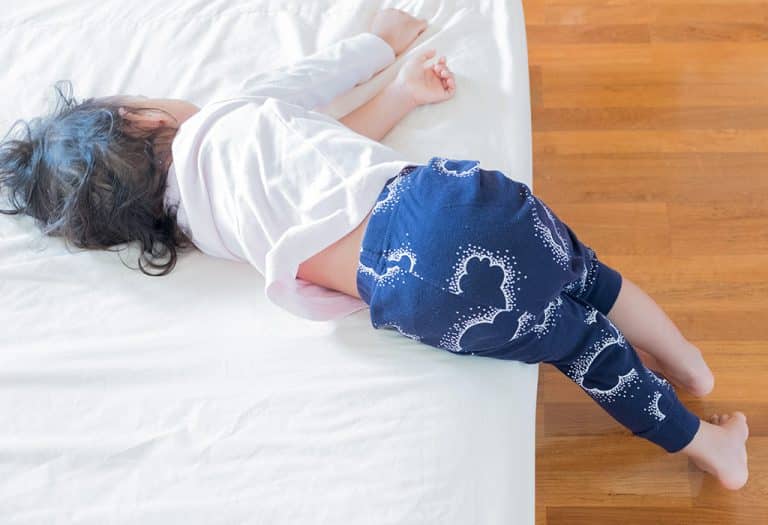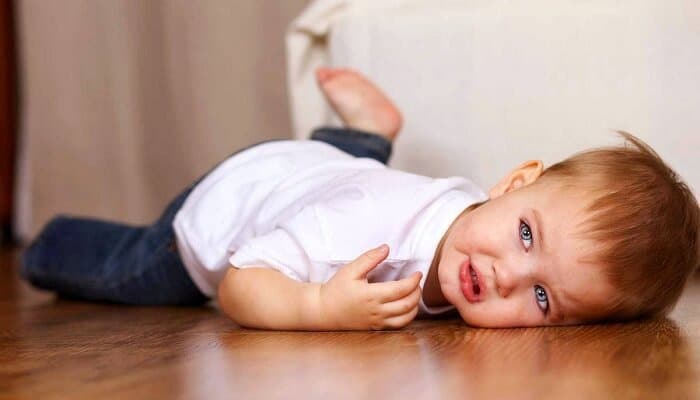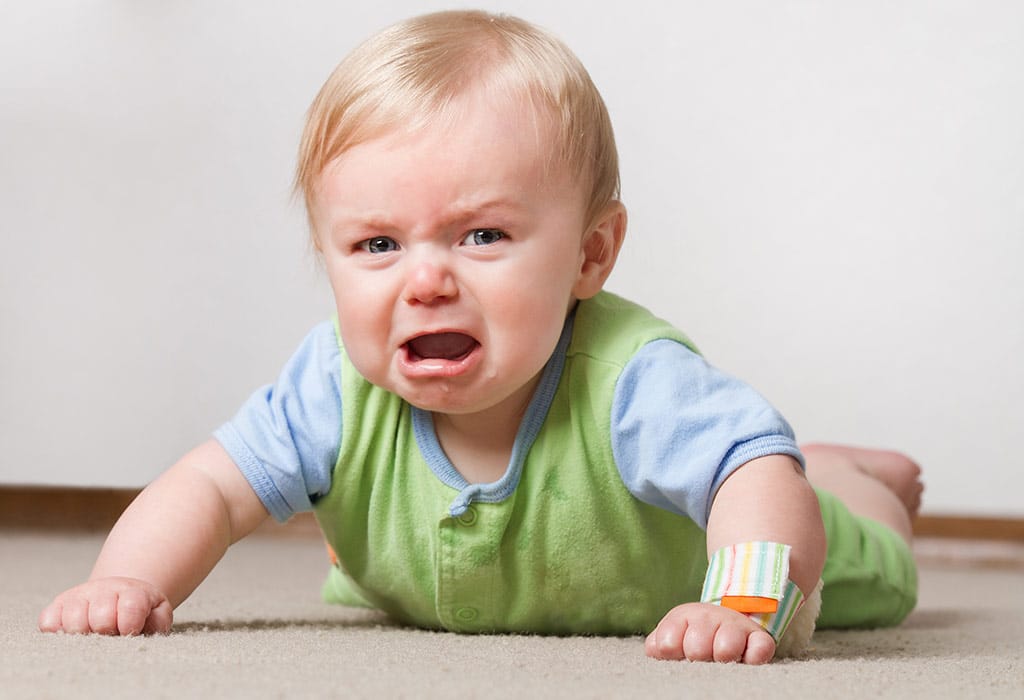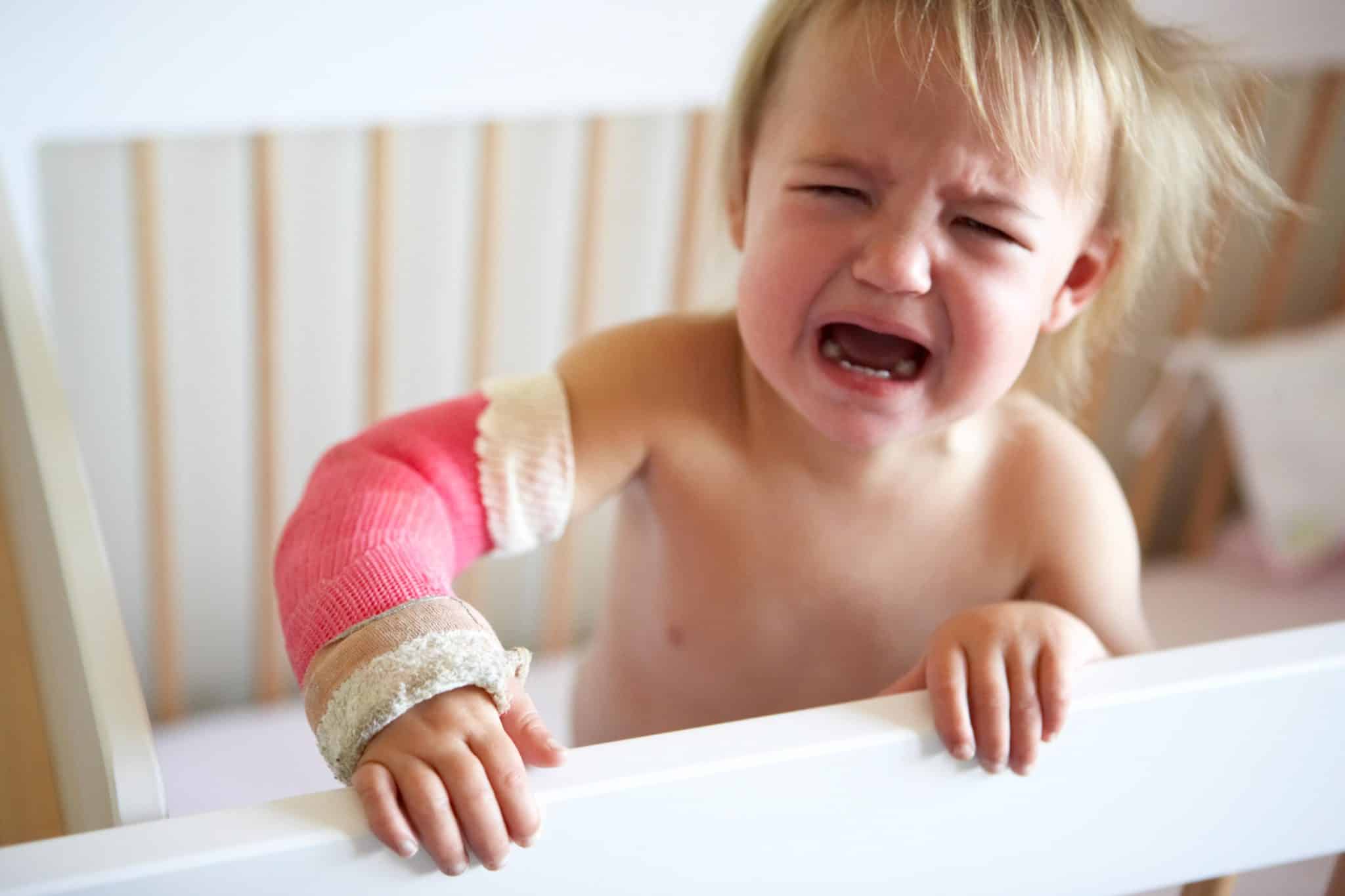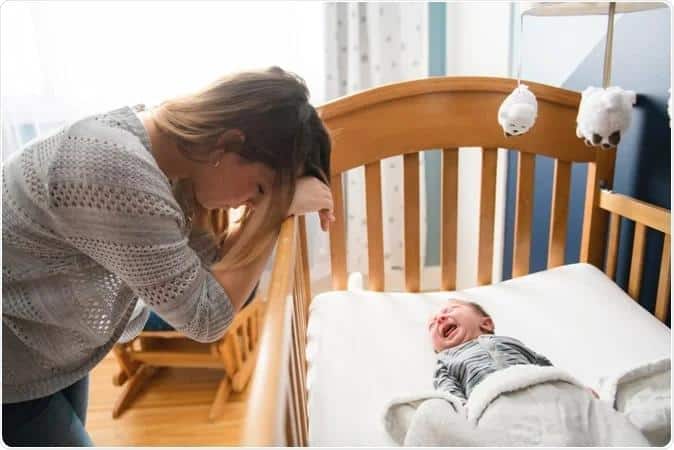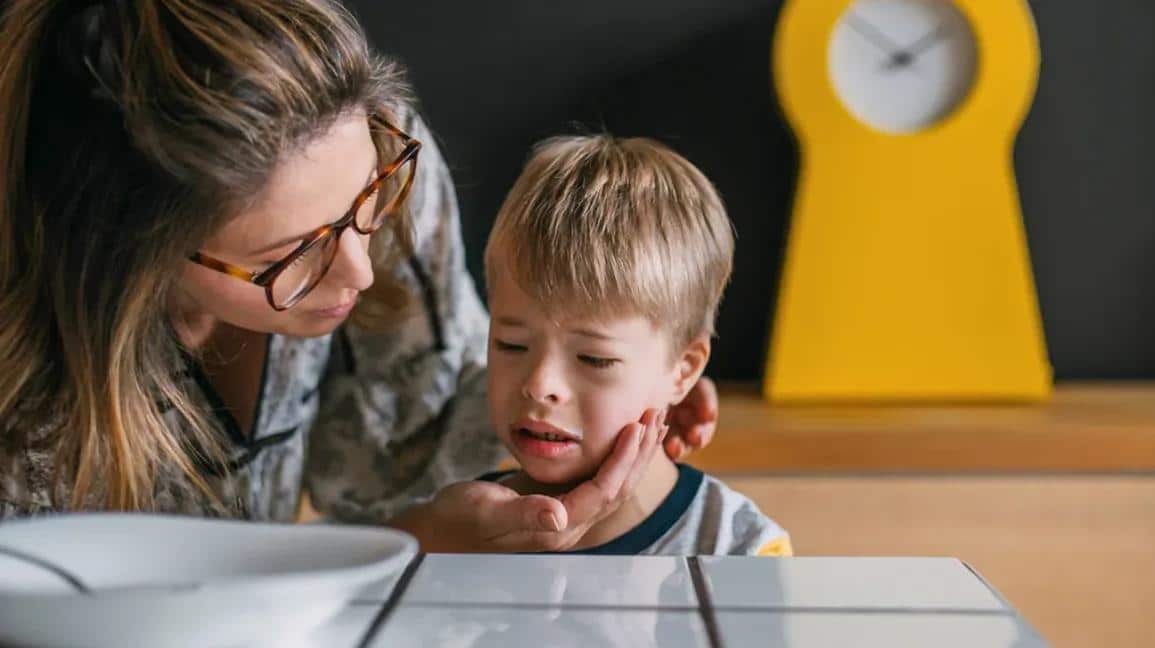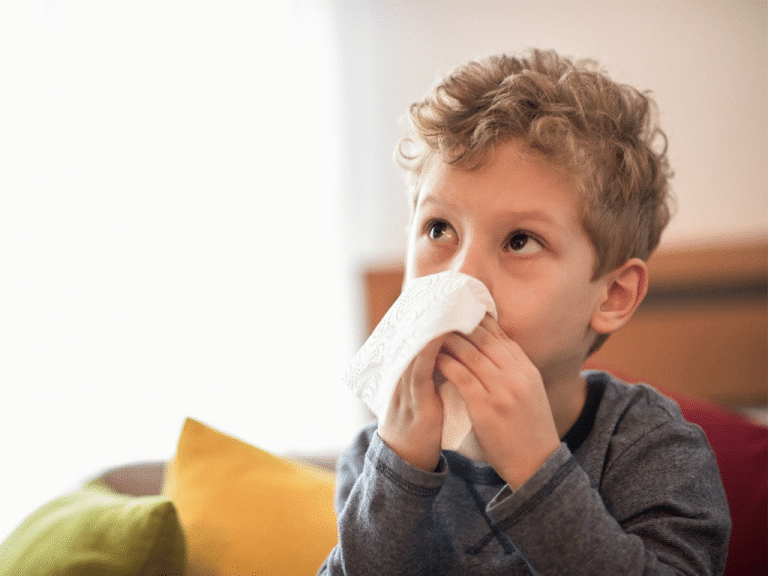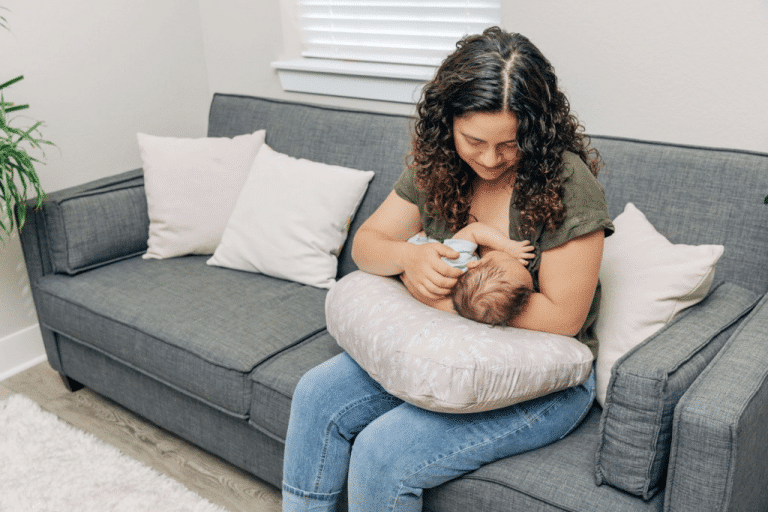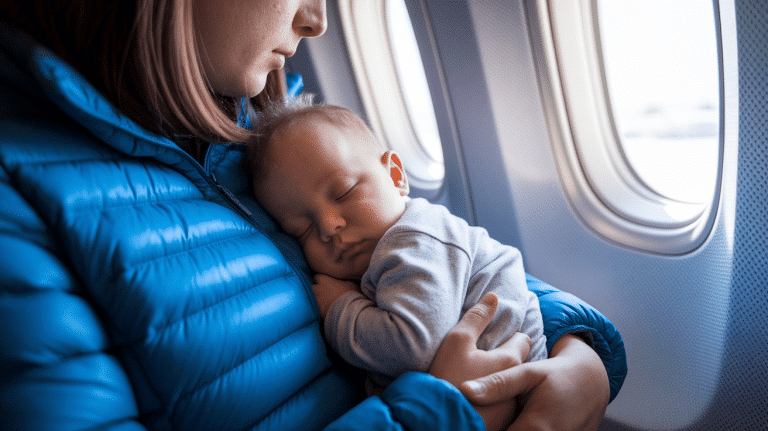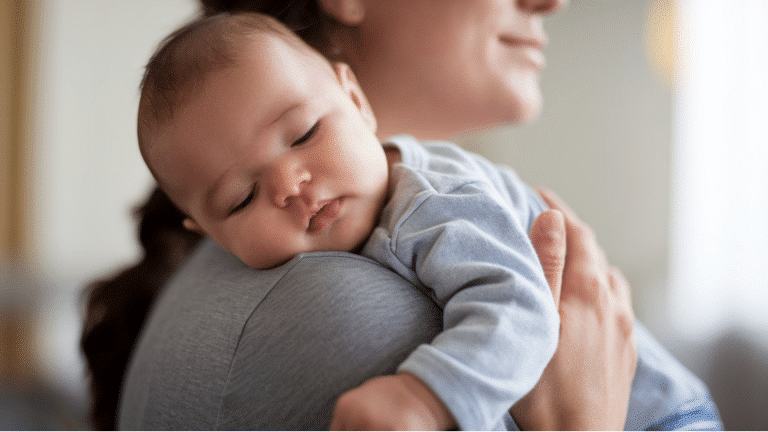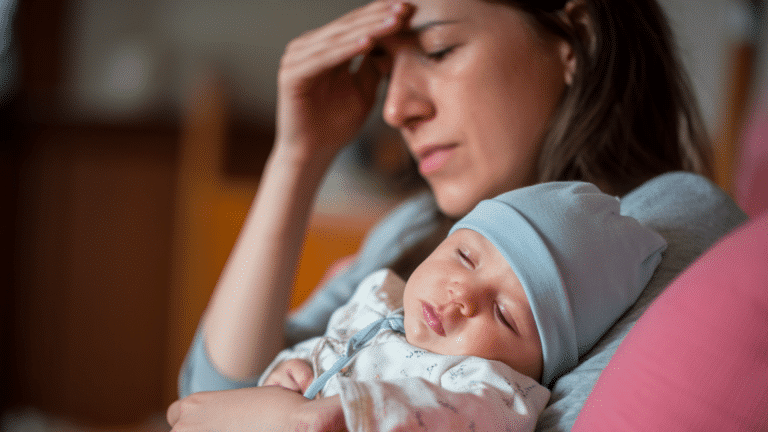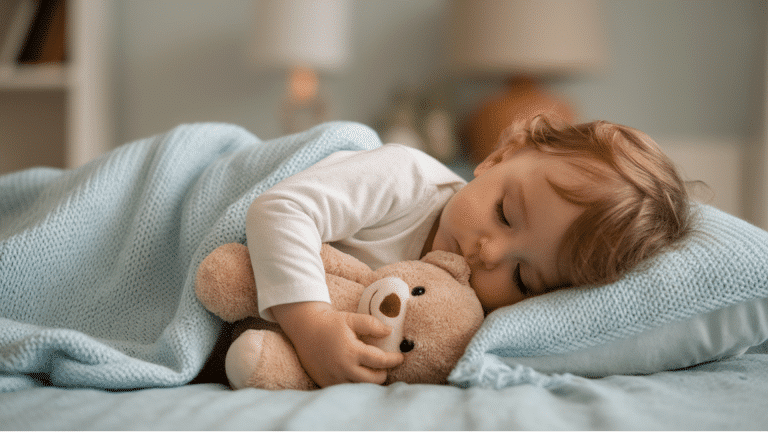A baby sliding off the bed is one of the frequent accidents that can cause parents to become immediately concerned for their infant’s safety.
Even though these situations can seem minimal initially, their possible long-term effects are substantial and demand additional care.
It is critical to recognize the hazards associated with neurological consequences, emotional trauma, musculoskeletal issues, and sleep disruptions.
The stress that comes with being a parent and providing a safe and healthy environment for your most valued family members is real.
Your baby fell off the bed ever? To shed light on the several outcomes that may arise, we have examined 5 Long term risks of a baby falling off the bed.
Risks of Baby Falling Off the Bed
Parents are often worried about the repercussions of their child falling off the bed. Knowing the repercussions can help the parents to look out for symptoms. Let us learn about the various long-term effects of a baby falling off the bed.
1. Cognitive Repercussions Of Head Injuries
The possibility of head injuries is the first thing to worry about when a baby falls off the bed. An infant’s skull is very sensitive and delicate, making it more prone to injury. In addition to external injuries like bumps and bruises, internal damage could occur and not always be seen immediately.
According to research, brain trauma sustained in infancy can have long-term effects on cognition. The growing brain is highly vulnerable to injury; even minor wounds have the potential to impede proper neurological development.
Learning challenges, concentration problems, and other cognitive impairments that might not show up until the kid is older are some examples of long-term effects you may witness.
2. Impact On Behavior And Emotions
A baby who falls off the bed may experience behavioral and emotional problems in addition to physical ones.
Due to their acute sensitivity to their environment, infants may experience increased anxiety and panic following a stressful incident such as tumbling off the bed.
Research indicates that early-life trauma may have a role in the development of behavioral problems in later childhood. These might show themselves as heightened anxiety in specific situations, trouble building stable bonds, or increased irritability.
After such an occurrence, parents should be aware of any behavioral changes in their infants and seek professional help if needed.
3. Problems With The Musculoskeletal System
A baby’s musculoskeletal system may be impacted by a fall, resulting in long-term problems. Babies are more prone to injuries because of their growing bones and joints.
Sprains, fractures, and dislocations may not immediately show symptoms after falling from a height. Untreated musculoskeletal injuries can eventually lead to persistent discomfort, joint abnormalities, or even bone malformations.
Consult a pediatrician regularly to assist, detect, and treat any post-fall musculoskeletal problems.
4. Anxiety And Sleep Disorders
A baby’s whole growth depends on sleep, and regular sleep patterns might be disrupted by falling out of bed. The infant may find it difficult to fall asleep and stay asleep because of increased anxiety brought on by the dread of falling again.
Early sleep disorders that don’t go away can have a domino impact on a child’s physical and mental health. Early childhood sleep disturbances have been related in studies to a higher risk of obesity, behavioral issues, and developmental abnormalities.
Parents must thus take immediate action to resolve any sleep disruptions and put safety precautions in place for their children to sleep in.
5. Social And Interpersonal Challenges
Early life events, including mishaps like falling from the bed, can have an impact on a child’s social and interpersonal abilities. A child’s capacity to build bonds and handle social interactions may be impacted by traumatic events that heighten anxiety or terror in social situations.
Any indications of social difficulties, such as extreme shyness or aversion to group activities, should be watched out for by parents. Potential long-term social and interpersonal difficulties arising from a fall can be lessened by promoting pleasant social experiences and creating a supportive atmosphere.
How Do You Keep Babies from Falling Off the Bed?
Raising awareness, making changes to the surroundings, and implementing safe sleeping techniques are all critical in preventing newborns from sliding off the bed. Take a look at the following tips.
- To reduce gaps, always position the infant in the middle of the bed, away from the edges, and choose sheets that fit snugly.
- To establish a barrier and lower the chance of unintentional falls, think about adding bed rails.
- During playtime and diaper changes, keep a watchful eye on the infant and, as an added safety measure, place a changing pad on the ground.
- Make sure the bed is low to the ground to lessen the effect in the event of a fall.
- The danger of falls during naps can be further reduced by setting up a secure sleeping environment with a firm mattress.
- Do the babyproofing of the house accordingly to prevent further significant accidents.
Summing It Up
There are more hazards involved with a baby slipping off the bed than just potential body injuries. Parents need to be informed about the possible long-term effects, such as those on the musculoskeletal, emotional, and cognitive domains.
The most important things you can do to protect a newborn’s health and development are to provide a safe environment for them, put preventive measures in place, and seek expert help when necessary.
There are dangers associated with being a parent, and recognizing and managing these risks may help ensure the safety of children.

